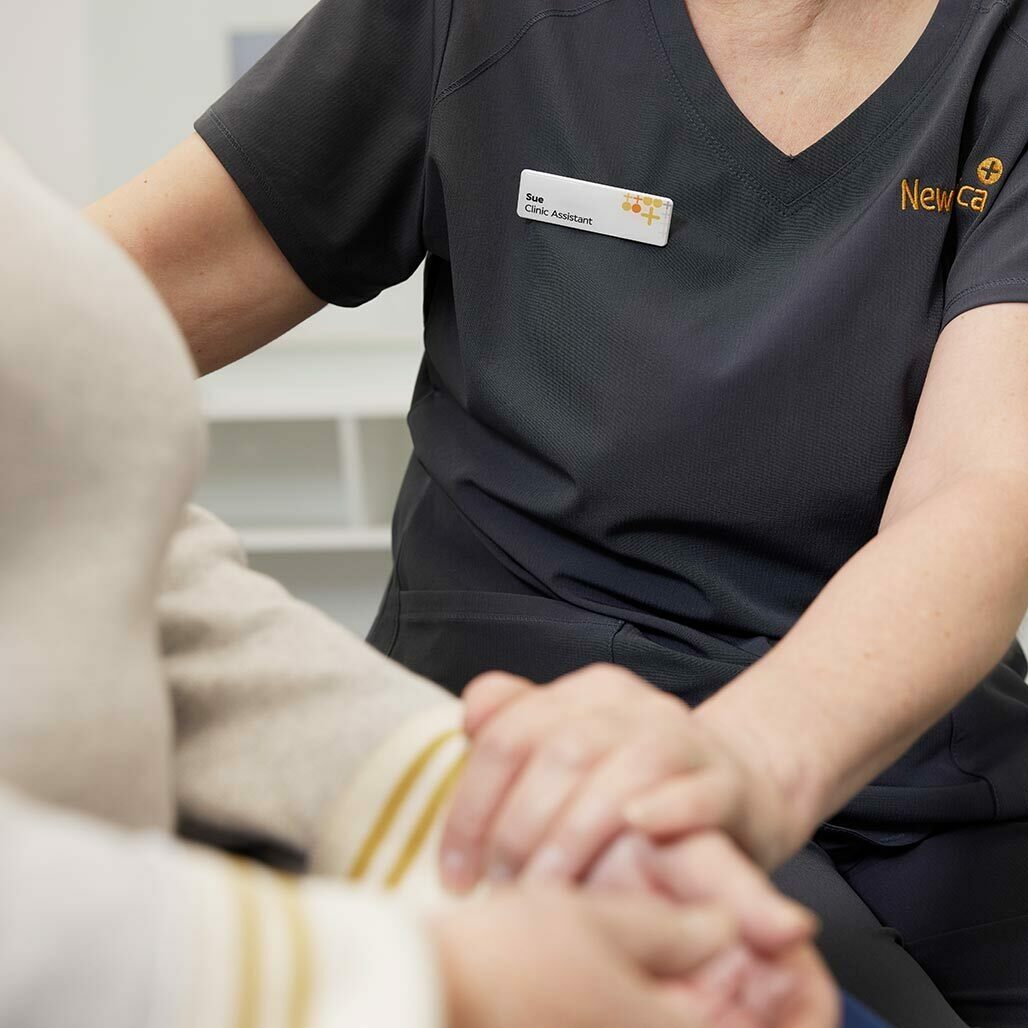They all spoke to me calmly and explained what would be happening. They were amazing.
Sarah’s story

The macula is a small area (about 5mm) found in the middle of the retina, the light-sensitive layer that lines the back of your eye. It allows us to see fine details needed for things like reading, watching TV or threading needles. When a gap forms in this part of the retina, it’s known as a macular hole.
People with macular holes tend to notice a change in their central vision, usually in one eye. Things might look blurry or distorted, or you could feel like you have a blind spot in the centre of your vision. Some people say that straight lines look bent (distortion), letters appear ‘jumbled up’ when reading or it’s just more difficult to read, watch TV or carry out close-up tasks.
Symptoms can vary quite a bit depending on the size of the macular hole.
In most cases, a macular hole develops due the natural ageing process within the eye. The vitreous (the gel-like substance that fills your eye) is attached to the retina with lots of very tiny fibres. With age, the vitreous starts to naturally shrink, which means that some of these fibres pull away from the retina. In some cases, this process can create a tiny hole in the macula or even vitreous floaters.
Sometimes, it isn’t quite clear why macular holes develop. They’re rarely associated with other eye-related conditions, including:
Eye injury
Detached retina
Severe short sight (called myopia)
If you ever notice the symptoms associated with a macular hole, it’s important that you see your optometrist as soon as possible for an eye exam. If they spot any signs of a macular hole, they’ll refer you on to specialists like us to do some more tests.
When we’re looking for macular holes, we use eye drops to dilate the eye so we can get a really clear view of the back of your eye and use what’s known as an OCT scan to see the structures of your retina in detail, which helps us to find the macular hole. If we do find something, we’ll be able to determine the right treatment for you, whether that’s with macular hole surgery or ongoing monitoring.
Macular holes rarely seal themselves and occasionally your consultant will recommend ongoing monitoring. In a lot of cases, surgery is needed to repair the hole and help improve vision.
The surgery is known as a vitrectomy and involves removing the vitreous and filling the eye with a special gas bubble. The macular hole heals behind the gas bubble which gradually disappears in around two to four weeks.
The main benefit is that it preserves the central vision in your eye. Without macular hole treatment, the hole will likely become chronic, which means that it can have a permanent effect on your central, detailed vision. Timely treatment within weeks to a few months is the most successful time frame to receive macular hole treatment and achieve the best possible results.
In general, it takes between six to eight weeks to fully recover from macular hole surgery and for your vision to start improving. In the week or so after your procedure, the gas bubble starts to absorb, and the eye fills back up with the fluid it naturally produces. It’s normal for your vision to be very poor when the bubble is large, but it will gradually improve as it absorbs.
Although the vast majority of patients won’t experience any complications, as with all surgery there are some risks of complications. Our team will discuss these with you in detail at your appointment and will make sure you’re happy to go ahead with treatment.
Private macular hole surgery starts from £5,995 per eye and combined vitreoretinal and cataract surgery starts from £6,995 per eye. That includes all your pre- and post-operative appointments, as well as your medication.
If you have any questions about available treatments or you’d like to book an appointment with a full assessment of your macular hole condition, get in touch with us.
Building 720, Waterside Drive, Aztec West, Almondsbury, Bristol, BS32 4UD
St Andrew's House, 4400 Parkway, Solent Business Park, Whiteley, PO15 7FJ
Unit 2, Anchorage Ave., Shrewsbury Bus. Park, Shrewsbury, SY2 6FG
Your optician or GP will discuss the various treatment options available to you and where you can choose to have your treatment. You’ll be able to take the time to decide where you’d like to be treated, and your optician or GP will make the arrangements for your referral to Newmedica.
If you’re a private patient, you can just get in touch with us directly. But if you’re using private medical insurance, you might need some more information to make your claim. You can find all the details on our private referral page
If you think you have an eye condition, you should see your optician or GP for a detailed assessment. They’ll go through all the options available and tell you where you can have your treatment.
The referral process will differ slightly depending on whether you want to be an NHS or private eye treatment patient. You’ll find all the information you need on our NHS and private patient pages.
Are you a health care professional?
Find out how to refer a patient.
Find details about our private
options and how to get started.
Self-referring? Call 0800 4096 792


